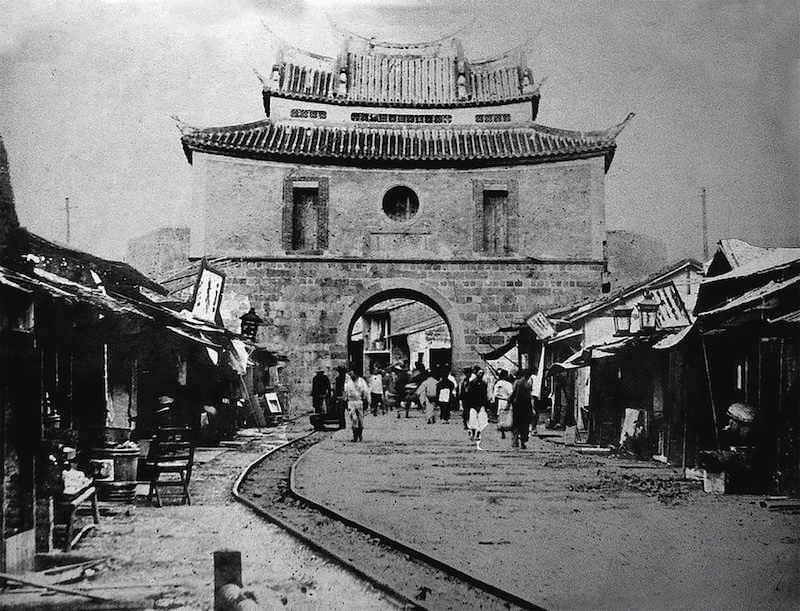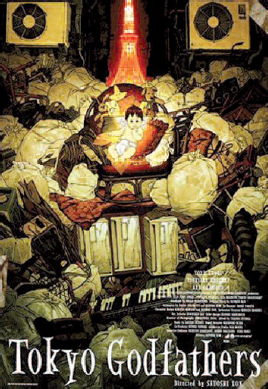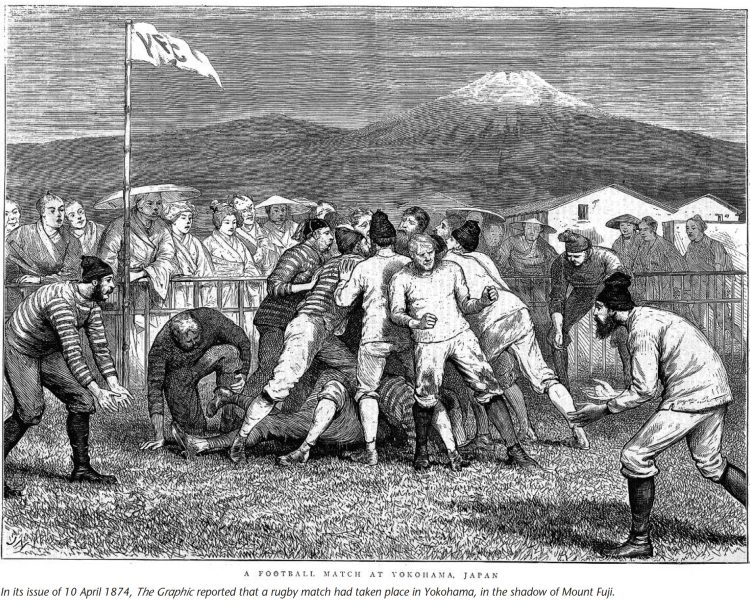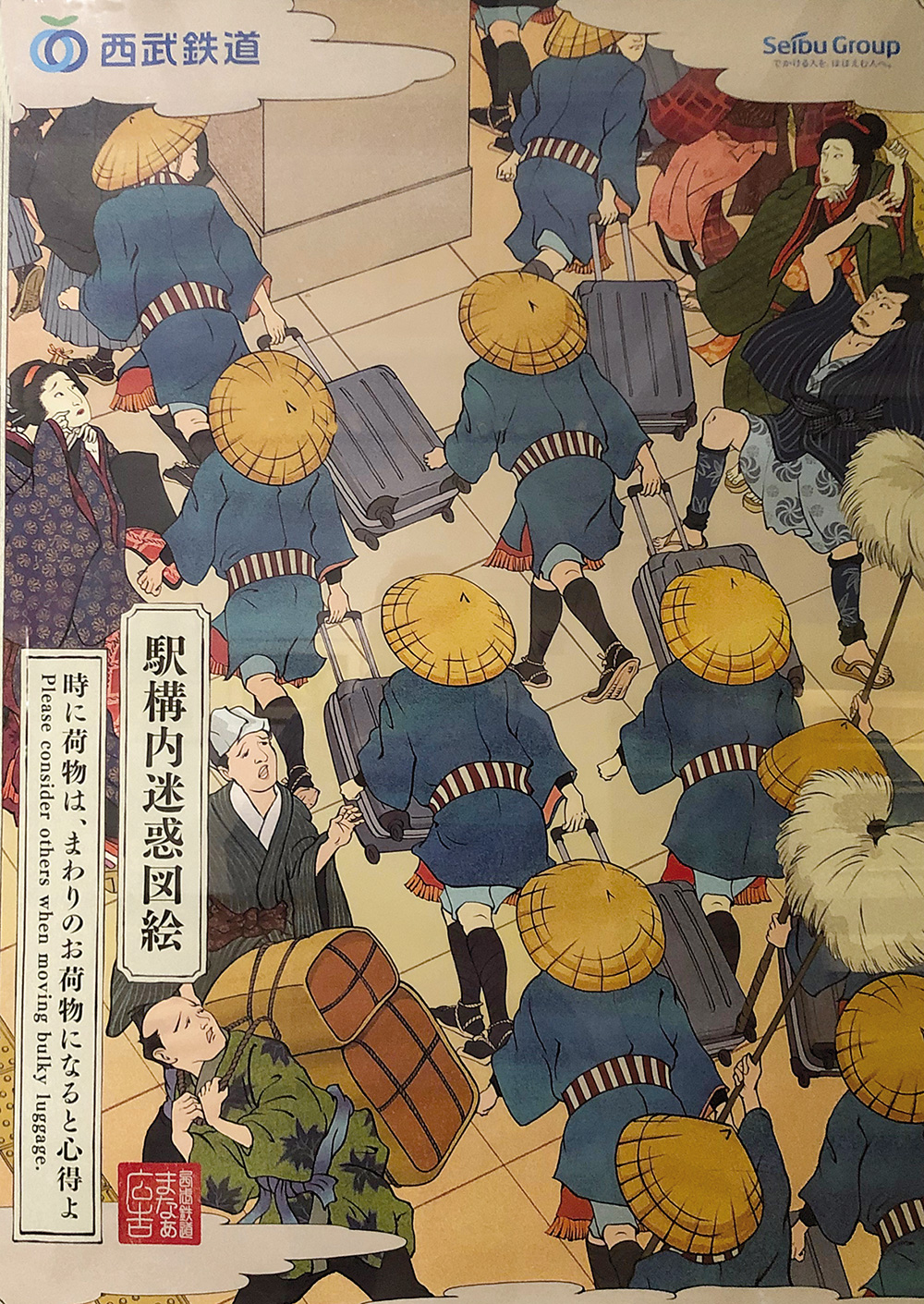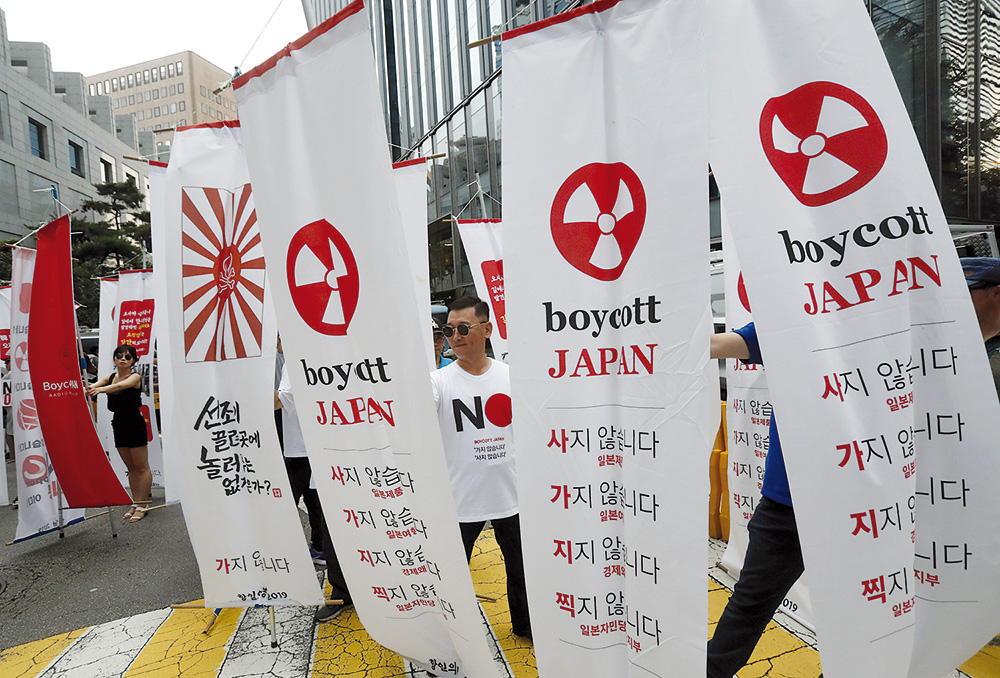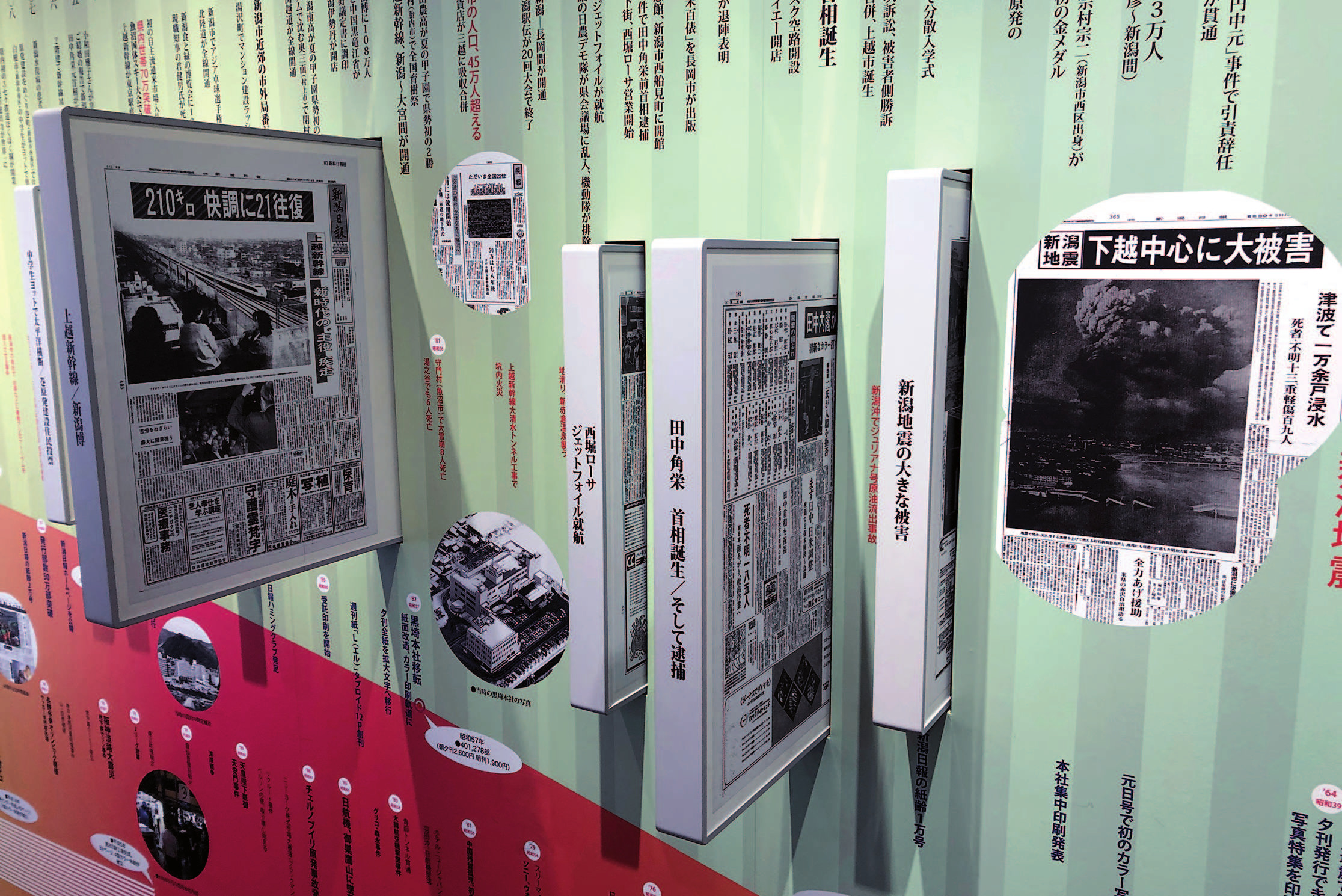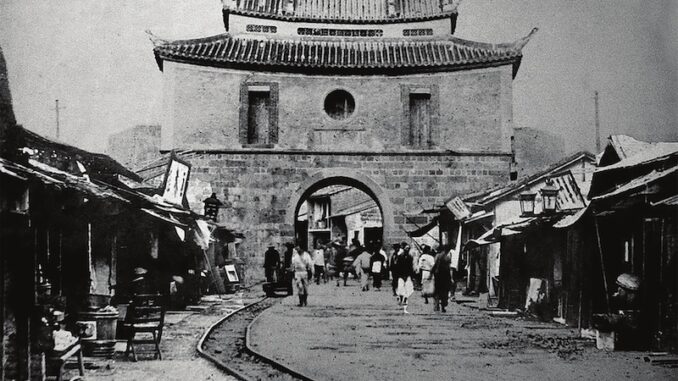
Although the Japanese express their appreciation for Taiwan, they still know very little about their southern neighbor.
What are the roots of Japan’s long relationship with Taiwan? And how has the way the Japanese see Taiwan changed in time? Zoom Japan asked these questions to two experts in the field, Hirai Kensuke and Kawashima Shin.
Hirai is a professor at the Faculty of Economics, Konan University. His new monography, which came out this year, is Taiwan Under Japanese Rule: Development, Colonialism, and Independence. Kawashima is a professor at the Department of International Social Sciences, University of Tokyo
Hirai Kensuke interview
What role did Taiwan play in Japan’s imperial ambitions?
For Japan in the Meiji period, having a colony was considered a sign of being a first-class nation, so it followed the example of European imperialism. Now, there were two ways to do so, either going north or south. Obviously, they could not touch the European colonies in Asia because it would lead to war, so the only places left to satisfy their imperial ambitions were Korea and Taiwan.
There wasn’t really a unified opinion within the government on which direction to follow. Then, after winning the Sino-Japanese War (1894-95), Japan was able to take Taiwan. In that sense, it’s fair to say that Taiwan was the critical first piece in the Japanese colonial empire.
On the other hand, in the early 20th century, Japan’s overseas expansion quickly turned north, toward Korea and Manchuria, so Taiwan’s role was quickly scaled down. To be sure, there was a moment, in 1900, when Japan tried to expand from Taiwan to Fujian Province in China, but it was immediately opposed by Britain. At that time, Japan’s imperialistic ambitions required the Westernpowers, namely Britain, France, Germany, Russia, and the United States, to agree in advance. Since it was not possible to expand into China, Taiwan’s role was almost over at that point. After that, Korea and Manchuria became more important.
Finally, at the end of the 1930s, as Japan entered World War II, it once again pushed Japan southward, but this time, Taiwan was unable to play a leading role; it was the Japanese Navy, the Ministry of Foreign Affairs, and other Japan-based interests who took the lead, with the Taiwan Government-General’s Office being relegated to a secondary position and simply doing what they were told from Tokyo.
In the administration of Taiwan, there seemed to be quite a rivalry between the Foreign Ministry, the military, and the colonial administration.
The Government-General in Taipei always wanted to play a leading role in Japan’s southward expansion. However, the Ministry of Foreign Affairs was in charge of Japan’s foreign relations, and they did not want the Taiwan Government-General to become involved. At that time, the Governor-Generalhad jurisdiction over Taiwan and the surrounding area. However, the Ministry of Foreign Affairs considered its involvement in the expansion into the south to be an excess of authority, and took several measures to prevent them from becoming involved.
The Ministry of Foreign Affairs disliked the military as well. They wanted to promote Japan’s foreign relations peacefully and most importantly, avoid fighting one of the big Western powers that had a great influence in Asia, especially Britain, America, and France. The military, however, was ready to use force if needed. You could say that the armed forces were stepping on the gas while the Ministry of Foreign Affairs tried to put on the brakes. As for the military, they did not mind the Taiwan Governor’s Office as long as it did not interfere with their plans. In this respect, they treated it as their junior partner.
I understand that differently from other colonies, where most of the personnel was Japanese, many Taiwanese were employed in the administration of Taiwan. Why was that, and what consequences did it have?
Well, not really. Generally speaking, compared to the Government General of Korea, the Government General of Taiwan did not employ many Taiwanese people. Every colonial administration tends to use the locals because they can help mediate between the colonial authorities and the population. Another big reason is money since their salaries were lower than the Japanese. In every organization, labor costs are very high, so the colonial power wanted to avoid spending as much as possible. In such cases, it was cheaper to have Taiwanese or Koreans do the same work than to hire Japanese people. According to current research, their salary was between half and 60% of what a Japanese would earn.
It must also be noted that Taiwanese bureaucrats, more so than the Koreans, were very low-ranking and could not achieve high-class status. For example, even if they studied hard and graduated from a good school, they were not treated the same as the Japanese, so Taiwanese intellectuals and the elite aimed to become lawyers or doctors instead.
On the other hand, to what extent did resistance against the colonial government play a part in the Japan-Taiwan relationship?
In the 1920s, the Taiwanese intellectual elites started a movement to create a local parliament in Taiwan, but of course, the Japanese never gave their consent. However, even before that, the first case of resistance against the colonial government occurred in 1895 when Taiwan was annexed to Japan after the Sino-Japanese War. People in Taiwan were shocked, they could not accept the sudden regime change, and many started a strong resistance movement. They took up arms but were quickly defeated. The uprising was ruthlessly suppressed and many people were killed. The colonial authorities went after the local elites and some 14,000 people were killed between 1895 and 1896. Many more were killed after that, so much so that within ten years of first taking Taiwan, Japan probably killed about 30,000 people. When you consider that the population of Taiwan at that time was three million, about 1% of the total population was killed, which is quite a large number. Very few Japanese people know about the story I just told you. Most Japanese know that Taiwan was acquired through the Treaty of Shimonoseki, but they probably think that it was a very peaceful change of regime, without bloodshed, and that Taiwan was ruled in a just and lawful way. They don’t know the truth.
If we compare that to the Kuomintang era, after WWII, Chiang Kai-shek’s regime killed more or less the same number of people, though at that point the Taiwanese population had doubled to about six million. In the end, when a new government comes to power, the first thing they do is get rid of the more dangerous opposition, such as intellectuals and activists.
That’s something I always point out whenever older Taiwanese praise Japan for being so good to them. Of course, the Kuomintang did terrible things, but even Japan killed many Taiwanese in 1895 and did other bad things. And, it is true that the Taiwan Governor’s Office helped the Taiwanese economy grow, but the Kuomintang did the same thing or even more, so it is not a question of which is better or worse.
Kawashima Shin interview
Do you think that the policy of assimilation conducted by Japan in Taiwan somewhat differed from similar policies in other Asian countries, and did it affect their postwar relationship?
First of all, I would not call it “assimilation.” Japan assimilated the Ainu people in Hokkaido and, to a lesser extent, Okinawa, but not its colonies. Also, when we consider colonial rule, what Japan did in Taiwan is basically not all that different from what it did in Korea.
For example, in the colonies there was not a conscription system (it was only introduced in Korea in 1944 and Taiwan in 1945). Conversely, the locals didn’t have the right to participate in politics. In other words, the people in the colonies had fewer rights and obligations than Japanese citizens. In that regard, Korea and Taiwan were basically treated in the same way.
One major difference between the two countries is that Japan annexed Taiwan in 1895, but the Taiwanese did not develop a strong identity as “Taiwanese” until the 1920s. Granted, even in Taiwan there was a resistance movement (e.g. the Wushe incident in 1930). However, Korea was already well established as a nation when it became part of the Japanese empire, so when that country lost its independence, it hurt much more. People were devastated.
Another crucial difference is what happened during the decolonization process after the end of WWII. The Korean peninsula was divided into two countries, of course, but the Koreans still managed to create two distinct nations. Of course, North and South Korea were born under the influence of the United States and the Soviet Union, but they reached some sort of independence through their own efforts.
However, in the case of Taiwan, Chiang Kai-shek and his people arrived from the continent and the country fell under the rule of a new regime under the Chinese Kuomintang, denying the Taiwanese a chance to decolonize and achieve true independence as Taiwanese. Chiang Kai-shek’s regime imposed martial law in Taiwan, suppressed freedom, and tried in many ways to turn the locals into Chinese. Their authoritarian, top-down approach made the situation even worse than under the Japanese. For example, during the February 28 Incident in 1947, some 25-30,000 Taiwanese belonging to the local elites were killed, and then the so-called White Terror came, making people’s lives even more miserable.
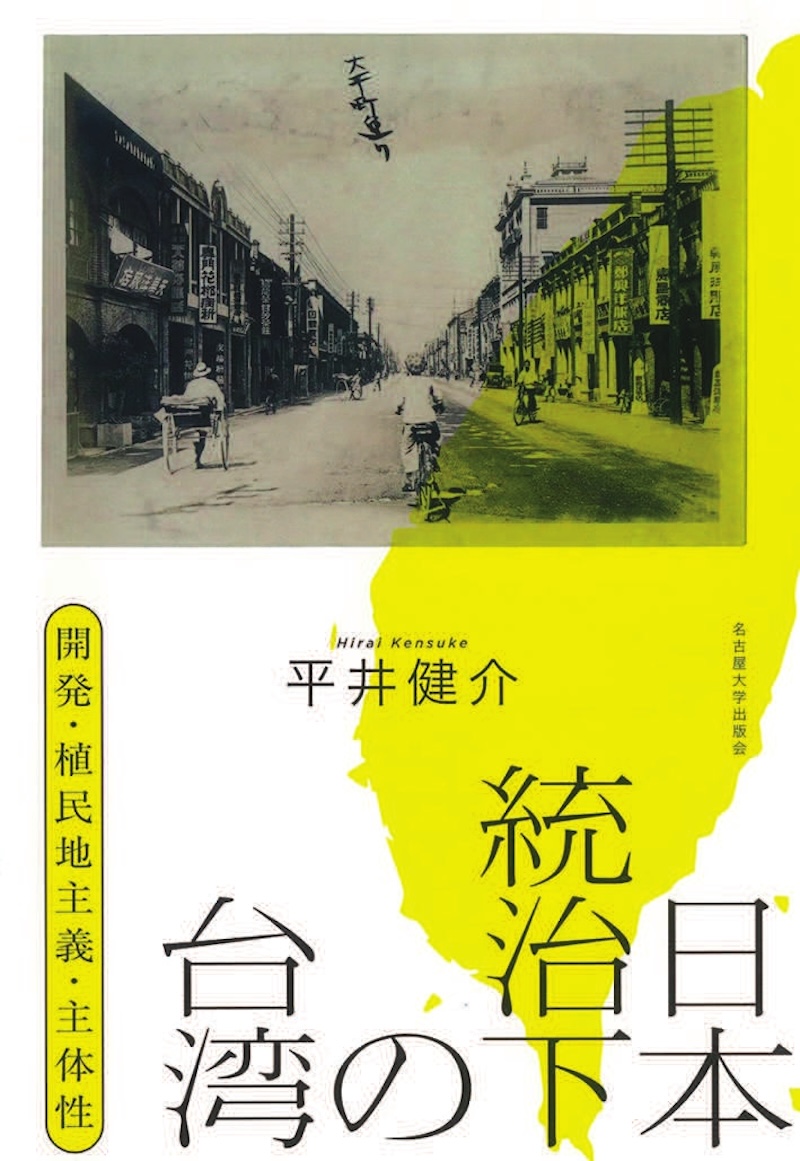
How has the way the Japanese see Taiwan changed in time?
The reason why the Japanese like Taiwan now is a matter of shared values and is also connected to Japan’s relationship with the People’s Republic of China. There are several issues involved, but one thing that must be stressed is that the way these two countries see each other is not that simple. For example, in the 1980s, more than 70% of Japanese people liked China. That was about 40 years ago when I was a child. Japan and China were very friendly back then. On the contrary, many people did not like or were not very interested in Taiwan, especially the intellectuals, since most of them were Marxists. Then, the wind changed in the mid-1990s. After the Cold War ended, democratic regimes were established in many former Communist countries, but China went in the opposite direction. During the Tiananmen Square incident in 1989, the pro-democracy movement was violently suppressed by the People’s Liberation Army. This massacre became the symbol of China’s anti-democratic stance.
Taiwan, in this respect, was closer to the Japanese people’s values, thus leading to a change in attitude toward that country. Liberal-minded Lee Teng-hui first came to power in 1988 and slowly managed to lead Taiwan toward democracy until in 1996, he became its first popularly elected president. At the same time, in response to the 1995 Murayama Statement (named after then-Prime Minister Murayama Tomiichi) in which Japan apologized to China for its aggression and colonial past, President Lee Teng-hui said that there was nothing wrong with Japanese politicians visiting Yasukuni Shrine, which commemorates the people who have died in service of the Japanese military since the Meiji period. Lee himself visited the shrine in 2007 because his brother was there.
Then, in March 1996, China conducted a series of missile tests in the waters surrounding Taiwan, leading to the Third Taiwan Strait Crisis, making Taiwan increasingly aware of the Chinese threat and its rapidly expanding military power, and leading to a further rapprochement with Japan.
Feeling that Japanese people’s feelings were turning away from China, the Lee administration carried out various maneuvers to strengthen Taiwan’s friendly exchanges with Japan. For example, they invited novelist Shiba Ryotaro and manga artist Kobayashi Yoshinori whose works about Taiwan were popular in that country. But in many people’s minds, the decisive factor was the 2011 Great East Japan Earthquake, when the people of Taiwan donated more than 25 billion yen to the victims of the triple disaster. The United States had actually provided much more support, but the fact that Taiwan’s help came from private donations made a more lasting impression on the Japanese.
Since 2011 things have changed and improved rapidly, even at the government level, with a series of bilateral agreements and memoranda on investments, fisheries, tax, Open Skies and working holidays. At the same time, Japan’s management of Chinese affairs has gotten difficult, especially since 2005-6. In 2005, there were anti-Japanese demonstrations in China that caused more than 80% of Japanese people to declare their dislike of China.
Now, people in Japan and Taiwan have more things in common. The younger generations, in particular, read the same manga, watch the same movies, play the same games, and wear similar clothes. In Japan, many students go on a school trip overseas before graduation, and Taiwan has become one of their favorite destinations. This creates even more opportunities to meet and know each other better.
This is a good thing because Taiwanese society is ahead of Japan in many respects. It’s more liberal and more open to minorities including LGBTQ issues. Japan has a lot to learn from Taiwan. Also, in Japan they still don’t teach properly about Taiwan and its long relationship with Japan. Even in national universities, there are probably hundreds of posts for Chinese studies, but not a single one for Taiwanese studies. This lack of understanding may cause a problem in the future. After all, even now, Japan and Taiwan have no formal diplomatic exchanges and our mutual knowledge is often limited to sightseeing, food, games, music, etc. On the other hand, common knowledge of politics, diplomacy, the economy and security issues is weak. Therefore, even though we seem to like each other now, it is hard to say how well we know each other. For that reason, it is important to deepen our mutual understanding while our relationship is good. If we don’t do this, there is a possibility that in the future, people may begin to make unfounded assumptions. We both need to be careful because even friendly relationships don’t stay that way forever.
Related to this last point is the fact that some Japanese feel that they must choose between China or Taiwan. This is a rather old-fashioned mentality that has been influenced by the Cold War, but the truth is that the cross-strait relationship has changed so much, and Japan itself has strong ties with both countries. One thing is for sure: we can’t help but deal with China, and we must keep Taiwan as a close friend, so we need to move on from the old dichotomy.
Interview by Gianni Simone
To learn more on this topic, check out our other articles :
N°143 [TRAVEL] The ideal tourist is Taiwanese
N°143 [FOCUS] The Curious Taiwanese Equation
N°143 [Eating & Drinking] Conquering Japanese Tastes
Follow us !

